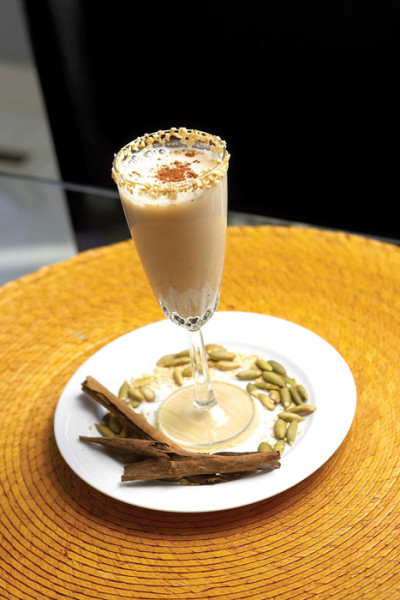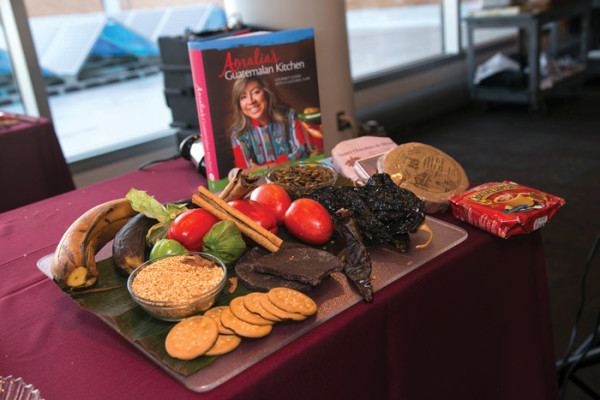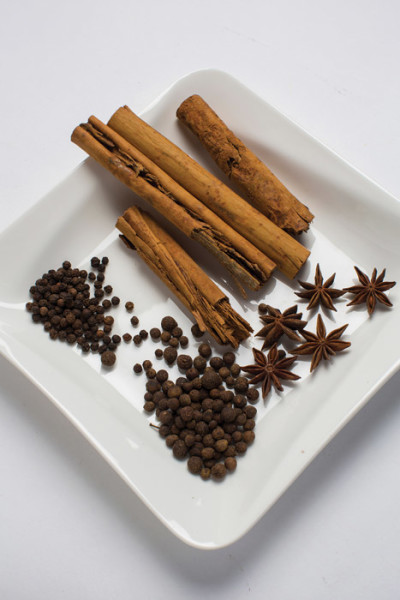Amalia’s Kitchen – Eating Healthier, Calories are not created equal
Calories are not created equal.
Eating healthier the old-fashioned way in Latin America was the way of our grandmothers, mothers, aunts and home cooks, who were not nutritionists or calorie freaks, but wise women with much common sense in the kitchen. This is the way I grew up, shopping at the mercado with my abuela (grandma) for fresh ingredients and taking them home to create simple, delicious and nutritious home-style delicacies. I don’t recall ever hearing the word calorie in her kitchen.
The latest food trend in the United States is regulating bar menus to inform patrons of the caloric content of each beverage. Some chain restaurant menus already adopted this practice, however, calorie counting is nothing new for most people in America and other parts of the world.
Regulation on chain restaurant menus and now bars is yet another attempt by the Food and Drug Administration to curb overweight-related diseases, such as Type 2 diabetes and others. May 2018 marked the deadline for establishments to show nutrition information in addition to calorie content on each menu item using 2,000 calories a day as a guideline. However, everyone’s caloric needs can differ; calorie counting is not a one-size-fits-all solution. The caloric needs of an athlete are much different than those of a pregnant woman, a child, a diabetic, an elderly person, and so on.
On top of that, calories are not created equal. There are calorie-dense and calorie-nutrient-dense foods.
Calorie-dense foods can have some nutrition but they can also be empty-calorie foods. Processed foods made with refined flours and sugars, such as cakes, doughnuts, cookies, snacks and soda, usually have a high calorie count per serving with little or no nutrition.
High-fat fast and fried foods can have three times more calories than a dish prepared using a low-fat cooking technique, such as roasting, baking or grilling.
Calorie-nutrient-dense foods are the ones we should focus on because they are good for our bodies for health and nutrition. They contain vitamins, minerals, fiber and other healthier essentials for our bodies. They include a wide variety of fruits and vegetables, whole grains and legumes, lean proteins and healthy oils, such as canola and olive.
As I write and think about this in terms of my and my family’s heath, I wonder, perhaps counting calories is not the solution for better health. How about focusing on consuming anything edible that grows in soil and limiting fatty animal proteins, drinking plenty of water and enjoying beverages flavored with fresh fruits and other natural ingredients sweetened with honey or a little sugar instead?
The Guatemalan and Latin diet is already rich in a wide variety of plant-nutrient-dense foods. We just need to focus on making them healthier by using low-fat cooking techniques and good fats, and add some exercise in between.
Here’s a quick, easy and refreshing recipe to kick off your summer.
¡Buen provecho!

HORCHATA DE PEPITA Y AJONJOLI
Rice, Cinnamon and Roasted Pumpkin and Sesame Seeds Drink
By Amalia Moreno-Damgaard, AmaliaLLC.com
Rice-only based horchata originally came to Latin America from Spain. Everyone makes it their own way. This is my adjusted Guatemalan version using roasted seeds and milk to make it more delicious and nutritious.
Makes 1 quart
½ white rice soaked in 3 cups cold water for 7 hours or overnight
¼ stick canela (Ceylon cinnamon)
2 tbsp. roasted pumpkin seeds
2 tbsp. toasted sesame seeds
1 tsp. almond extract
4 tbsp. honey or sugar, or to taste
2 cups skim milk
Ground cinnamon, sesame seeds
In a blender, combine all the ingredients, except the milk, and process to a fine consistency. Strain with a fine mesh colander.
In a pitcher, combine the rice mixture with the milk. Taste and chill.
Serve the horchata in tall glasses garnished with a little ground cinnamon and sesame seeds.
REVUE magazine article by Chef Amalia Moreno-Damgaard
Amalia Moreno-Damgaard is an award-winning bestselling chef author born and raised in Guatemala City currently living in the Twin Cities. She provides individuals and companies with a taste and understanding of Latin cultures through healthy gourmet cuisine education, consulting, bilingual speaking and writing and fun culinary experiences.
Her cookbook “Amalia’s Guatemalan Kitchen-Gourmet Cuisine With A Cultural Flair” has won 9 international awards. AmaliaLLC.com

